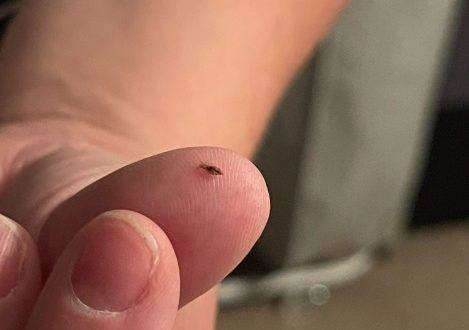ADVERTISEMENT
**How to Keep Head Lice Away from Children (and Adults!): Tips for Prevention and Protection**
Head lice are a common and often frustrating problem for children and adults alike. These tiny pests, which live on the scalp and hair, can spread easily in places where people gather, such as schools, daycare centers, and even at home. Although head lice aren’t a sign of poor hygiene, they can be uncomfortable and annoying, causing itching, irritation, and embarrassment. Fortunately, there are several preventive measures you can take to keep head lice at bay, both for children and adults. In this article, we’ll share practical tips for keeping lice away, how to spot an infestation early, and what to do if you find them.
### **What Are Head Lice?**
Head lice are small, parasitic insects that live in the hair and scalp. They feed on blood, causing itching and irritation in the process. Lice are most commonly found in children, but they can affect anyone. They are highly contagious and spread primarily through direct head-to-head contact or by sharing personal items like hats, brushes, or hair ties.
While head lice can be a nuisance, they are not harmful and do not spread disease. The itching caused by the lice’s bites is the most common symptom, but early detection and prompt treatment can prevent the infestation from spreading further.
### **How Do Head Lice Spread?**
Head lice spread primarily through direct contact. This is why they are so common in environments like schools, daycare centers, camps, and sports teams where children are in close proximity to one another. However, lice can also spread through sharing personal items such as:
– Hats, scarves, and helmets
– Hairbrushes, combs, and hair accessories
– Pillows, bedding, and towels
– Upholstered furniture and car seats
It’s important to note that lice do not jump or fly; they can only crawl from one person to another through close contact or by coming into contact with infested items.
### **How to Prevent Head Lice from Spreading**
While it may not always be possible to avoid head lice entirely, there are several simple yet effective strategies you can adopt to reduce the risk of an infestation. Here’s how you can keep head lice away from children—and adults:
#### **1. Teach Children to Avoid Direct Head-to-Head Contact**
Since lice primarily spread through head-to-head contact, it’s important to teach children not to share close physical contact with others, especially when playing or hugging. Schools and daycare centers may encourage children to keep their heads apart during group activities to minimize the risk of lice transmission.
#### **2. Keep Hair Tied Back or Covered**
Long hair is more likely to come into contact with lice, so it’s a good idea to tie hair back in ponytails, braids, or buns. This reduces the chance of lice crawling onto the hair from a nearby person. For additional protection, you can encourage your child (or yourself) to wear a hat, scarf, or headband when in crowded or high-risk environments.
#### **3. Avoid Sharing Personal Items**
Head lice spread easily through shared items, so teach children the importance of not sharing personal belongings. Items like hats, combs, brushes, hair ties, headphones, and pillows should never be shared. At home, avoid leaving personal items in common areas or in places where they can be accessed by others.
#### **4. Regularly Inspect Hair for Lice and Nits**
Early detection is key to preventing a lice outbreak. Check your child’s hair and scalp regularly (especially if they have been in a high-risk environment like school). Look for signs of lice, which may include:
– Itchy scalp
– Red, irritated spots on the scalp (from scratching)
– Tiny, white or yellowish eggs (nits) attached to hair shafts near the scalp
– Adult lice, which are about the size of a sesame seed and may be hard to see without close inspection
If you find lice or nits, act quickly to treat the infestation.
For Complete Cooking STEPS Please Head On Over To Next Page Or Open button (>) and don’t forget to SHARE with your Facebook friends
